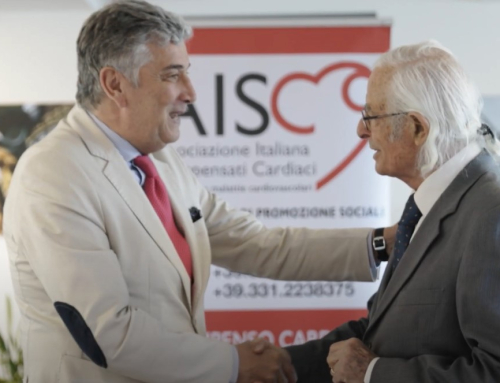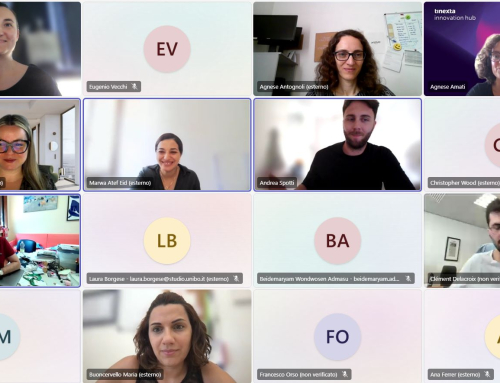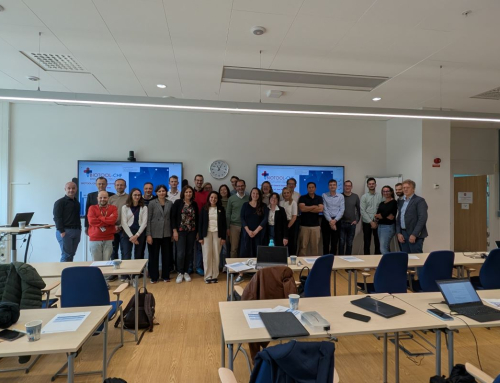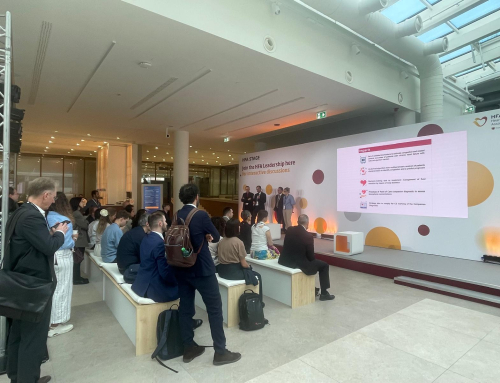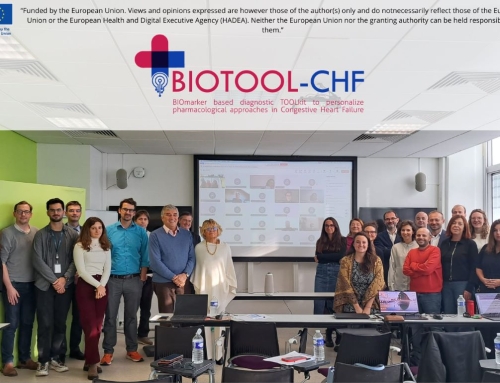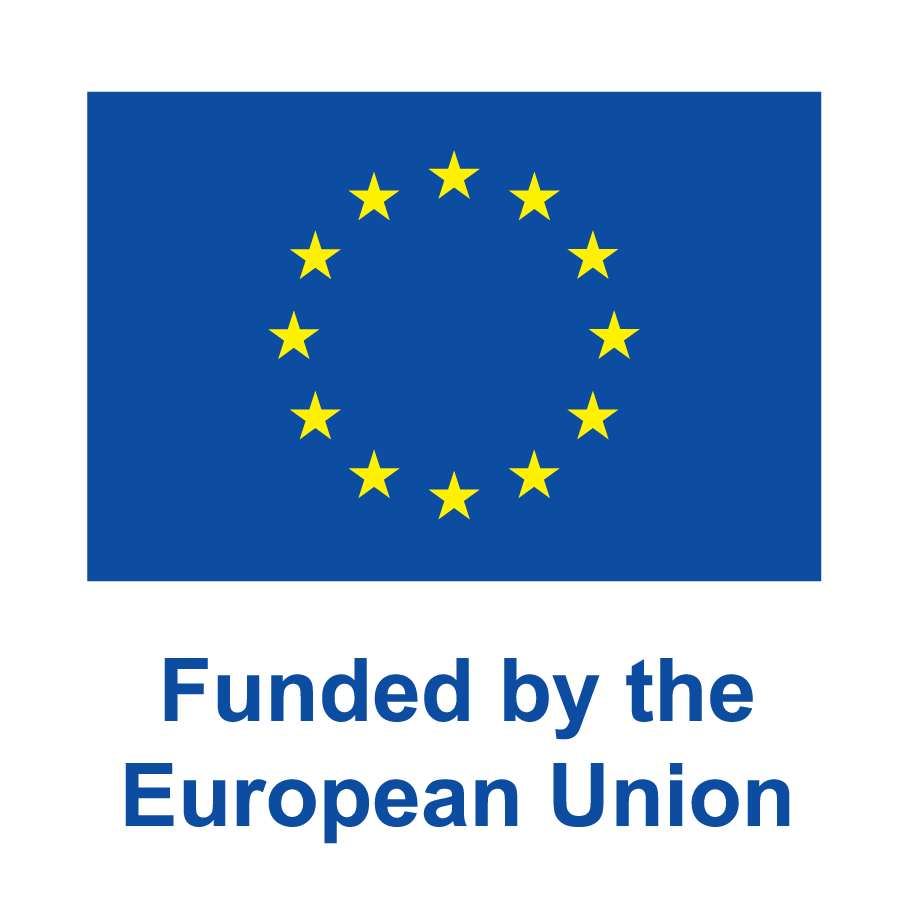1st September 2024
On August 31, 2024, the BIOTOOL-CHF project hosted a highly anticipated workshop titled “Tackling Congestion in Chronic Heart Failure: A Multi-Stakeholder Workshop to Define a New Pathway for Improving Patient Outcomes.”
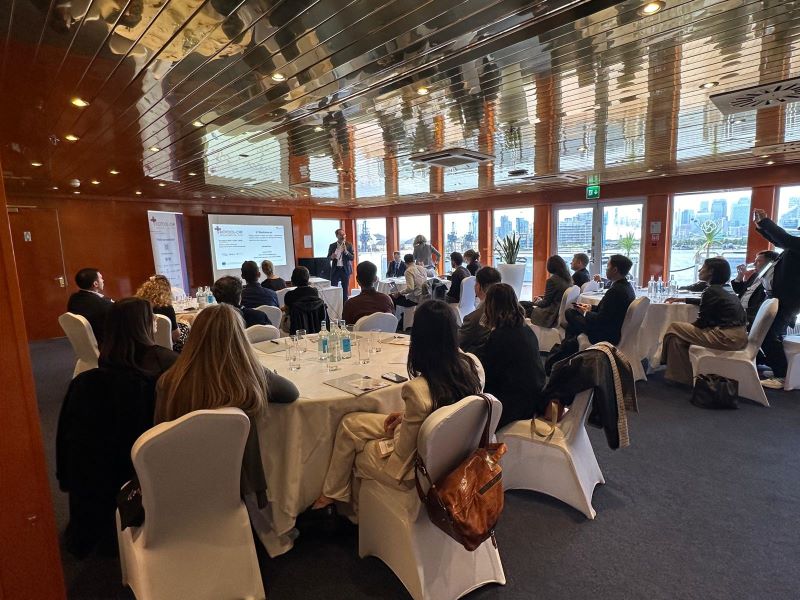
Held at the prestigious Sunborn London Yacht Hotel in London, UK, this event brought together leading experts, industry professionals, and research communities to explore innovative approaches to diagnosing and monitoring congestion in chronic heart failure (CHF).
The workshop was expertly moderated by Dr. Renate Schnabel, MD, MSc, a professor of internal medicine and cardiology, interventional cardiologist, and consultant in cardiology at the University Heart and Vascular Center Hamburg, Germany.
Dr. Schnabel guided the discussions, ensuring a productive exchange of ideas among participants.
The event commenced with a warm welcome and registration at 12:00 PM, followed by an introduction from Dr. Luciano Potena, the project
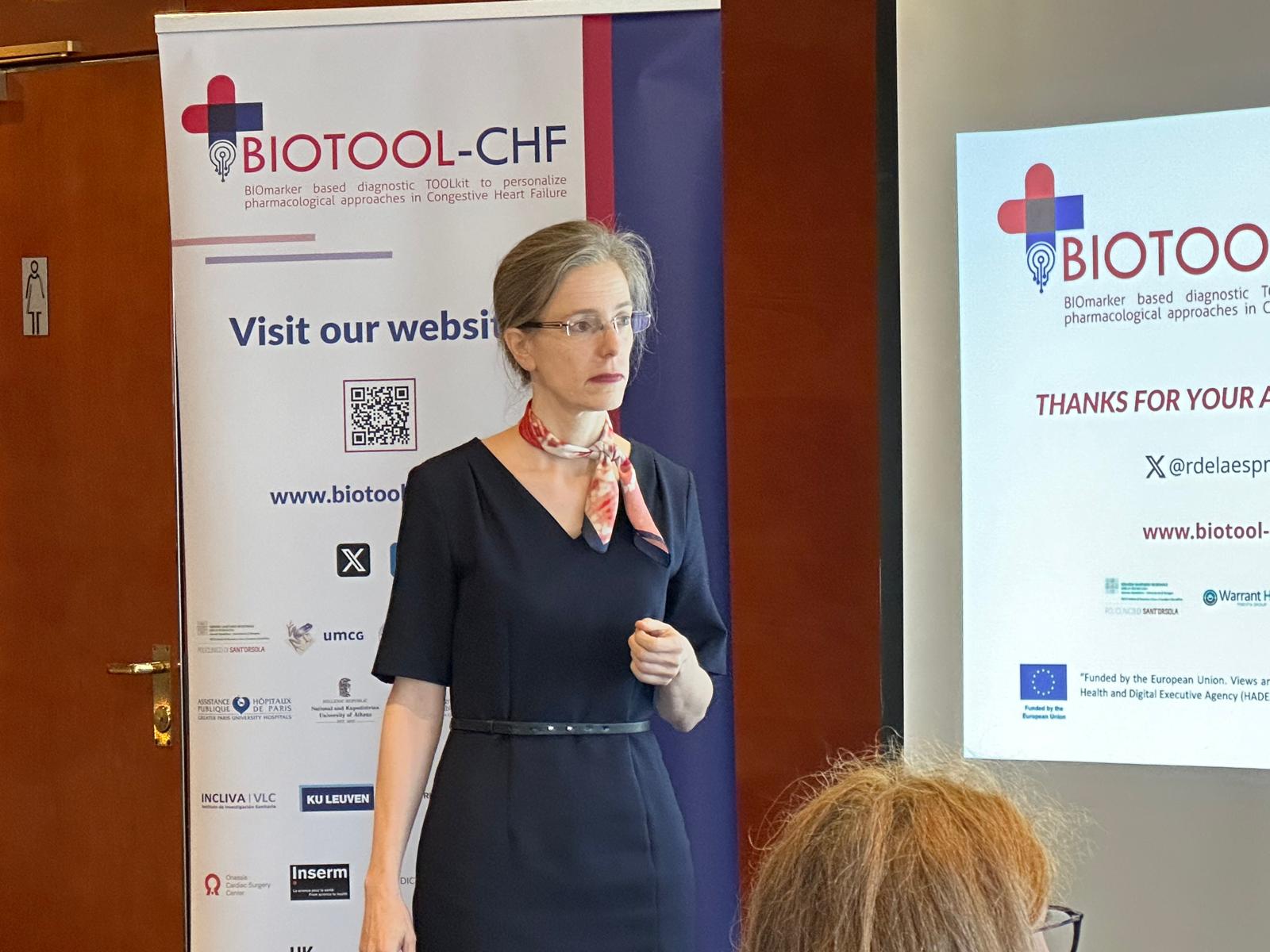
coordinator from the Policlinico Sant’Orsola in Bologna. Dr. Potena set the stage by introducing the EU Funded BIOTOOL-CHF Project, its main characteristics, the objectives and duration, emphasizing the critical importance of addressing congestion in CHF, which is a significant factor in the worsening of heart failure symptoms and outcomes.
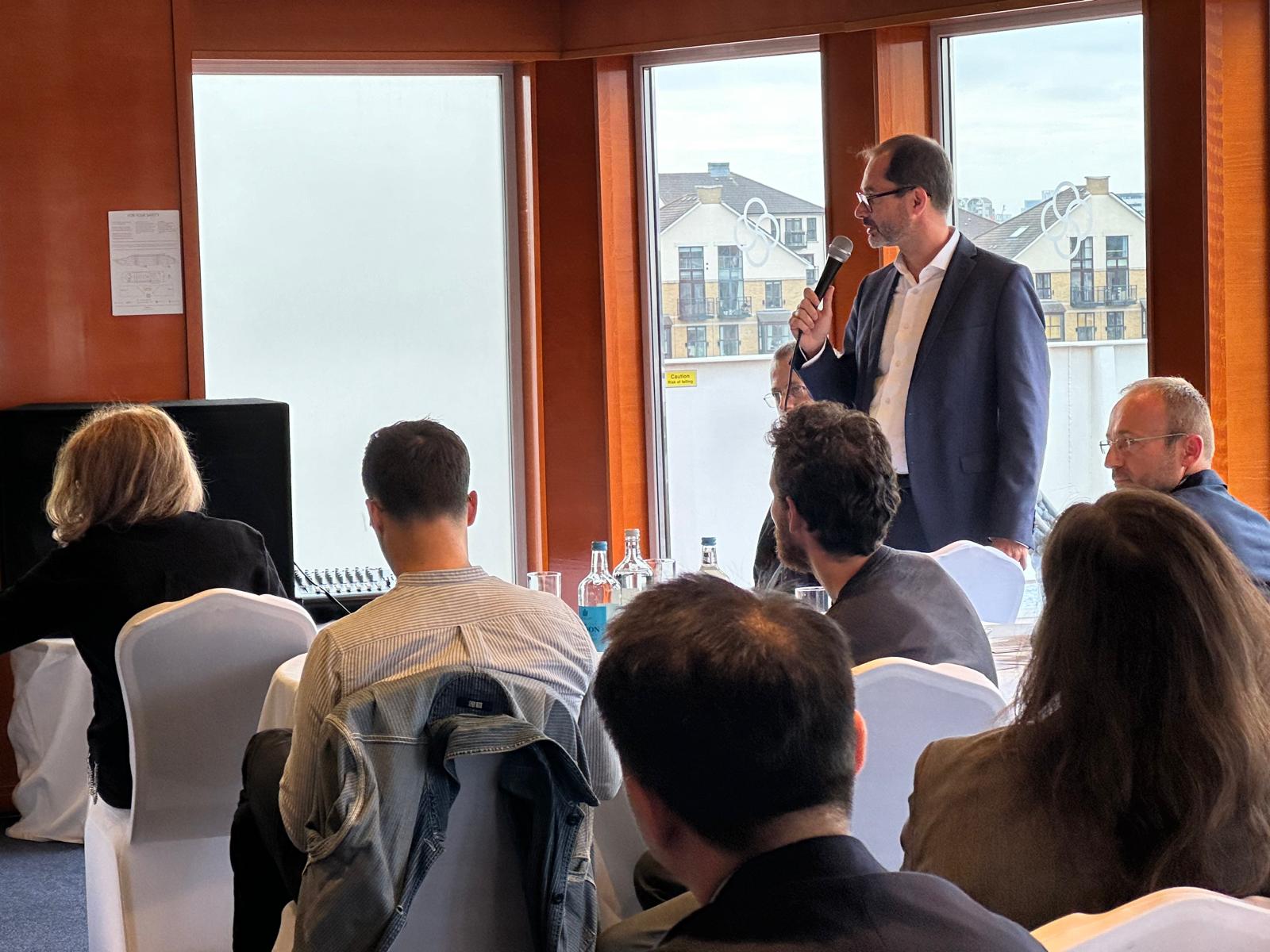
Dr. Jozine ter Maaten from the University Medical Center Groningen then took the floor, providing an insightful overview of what congestion entails and why it remains a pivotal concern in CHF management. Her presentation underscored the complexities of congestion and the challenges it presents in clinical practice.
The workshop then delved into the various methodologies available for diagnosing and monitoring congestion. Dr. Finn Gustafsson from Rigshospitalet discussed the potential of implantable devices in providing continuous monitoring, offering valuable data for managing CHF more effectively. This was followed by Dr. Igor Diemberger from the Alma Mater Studiorum Università di Bologna, who highlighted the role of non-invasive devices, making a case for their broader application in routine CHF care. Dr. Rafael de la Espriella from Hospital Clínico Universitario de Valencia concluded this segment by exploring the use of biomarkers in detecting and managing congestion.
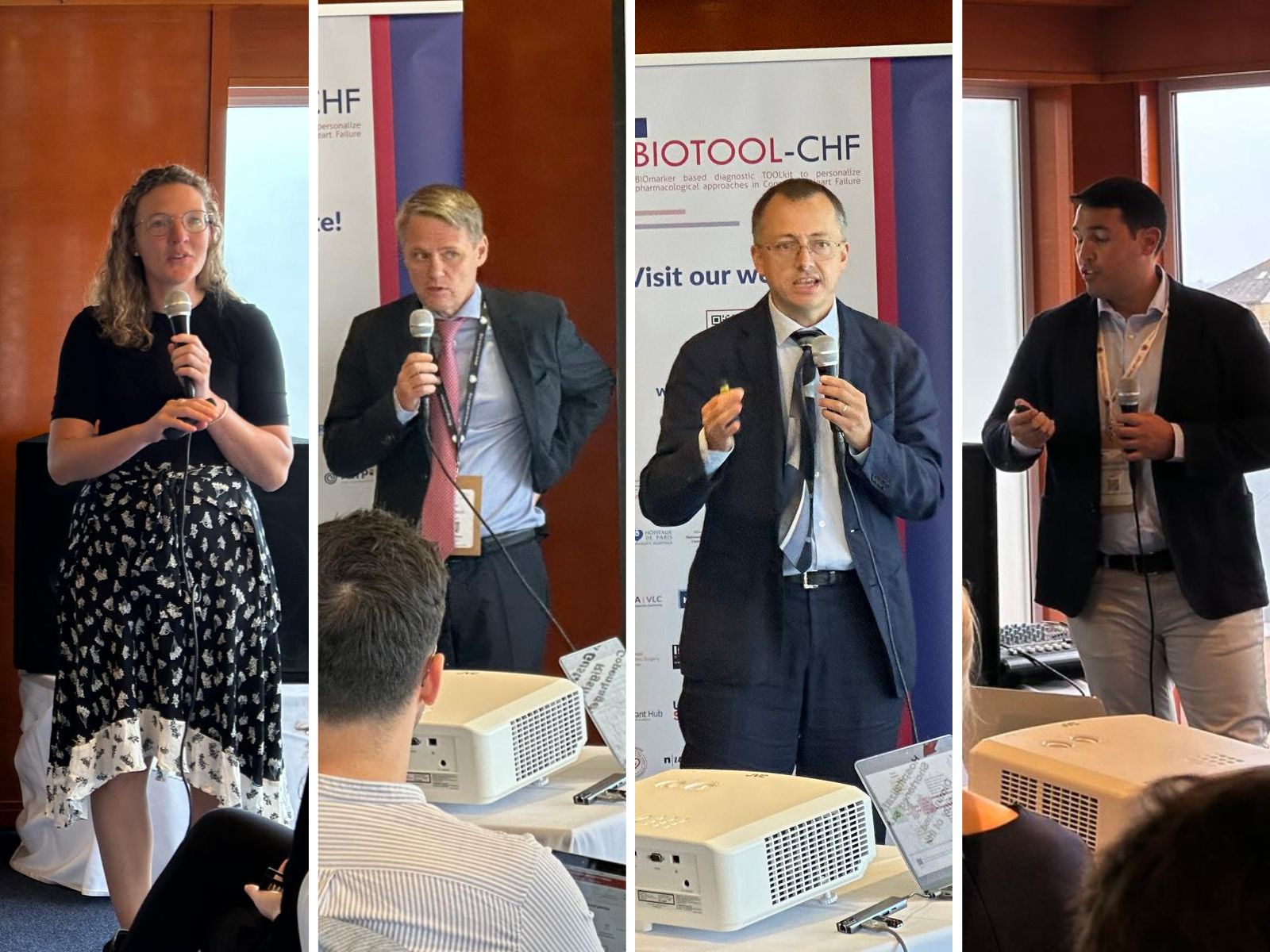
The session also explored the emerging role of big data analysis and point-of-care diagnostics in personalizing CHF management. Dr. Clément Delacroix and Dr. Marc Raynaud from INSERM discussed how big data could revolutionize the way congestion is managed by allowing for more personalized and timely interventions. Dr. Seraina Abele from FHNW further elaborated on the importance of point-of-care diagnostics, which can provide rapid, on-site results, enhancing decision-making in clinical settings.
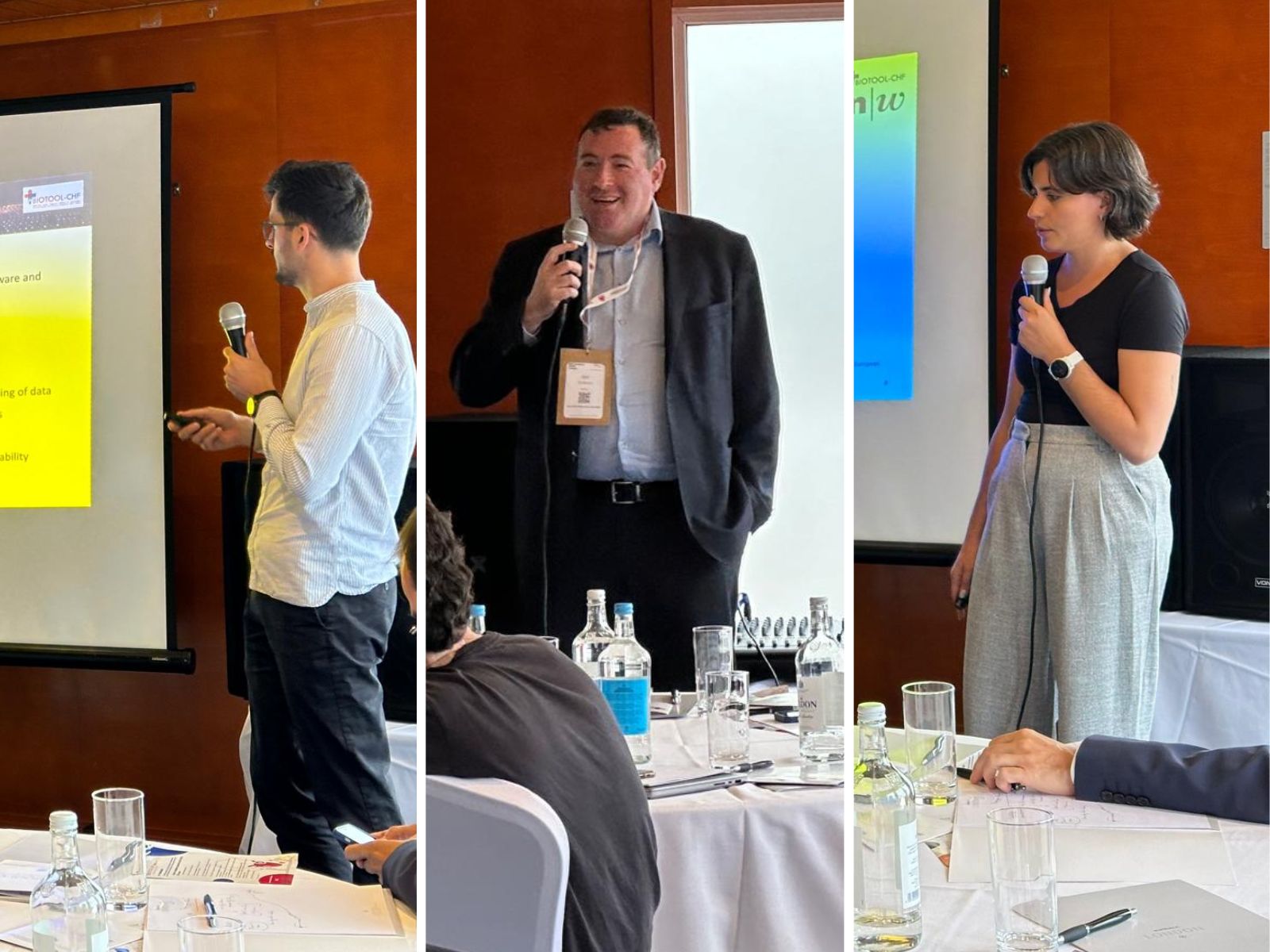
The workshop culminated in a dynamic panel discussion, where participants exchanged ideas and debated the most promising strategies for improving patient outcomes in CHF management. The session provided a platform for collaboration, with stakeholders sharing their unique perspectives and proposing innovative solutions.
The event concluded with a light lunch, allowing attendees to network and continue discussions in a more informal setting.
